The Rise of Artificial Intelligence
Topics in Economics, ESCP, 2024-2025
Introduction
Will only appear in HTML.
How do you see the future of AI ?
. . .

. . .
- Science Fiction has explored many issues associated with AI.
- what happens to individuals, markets, firms, government?
- who wins, who looses?
- Very often economic future is bleak…
- Why is that so?
What is AI?
What is AI
- AI can be:
- a field
- a set of technologies including
- machine learning
- deep learning
- reinforcement learning
- a philosophical concept
- Usual definition of AI:
- mimic human intelligence:
- problem solving: achieve goal without being explicitly told how
- learning: gets better over time
- without emotions
- mimic human intelligence:
How to make the difference between a robot and an AI ?
- Check whether it thinks like a human being
- A machine passes the Turing test if it can pass for a 7 years old human 50% of the time in a blind conversation
- can machines emulate human behaviour?
- Chinese Room thought experiment:
- how to differentiate somebody who speaks chinese and somebody who follows rules to speak?
- turing test cannot determine whether machines think
- What do you think of these tests?
Impress me?
- So, what can machines do that is really intelligent?
As an economist, how should we think about AI?
The Classical View
“This Time it’s Different” or “Same old, same old…”?


. . .
Do you remember the neoclassical production function?
The (neo)classical production function
What are its main properties?
- production takes several factors as inputs
- capital
- labour
- … (natural resources, land, …)
- each factor has a market price
- marginal returns w.r.t. each factor are decreasing
- factors are paid according to their marginal productivity
- the technology is the particular process through which inputs are combined
AI and the (neo)classical production function
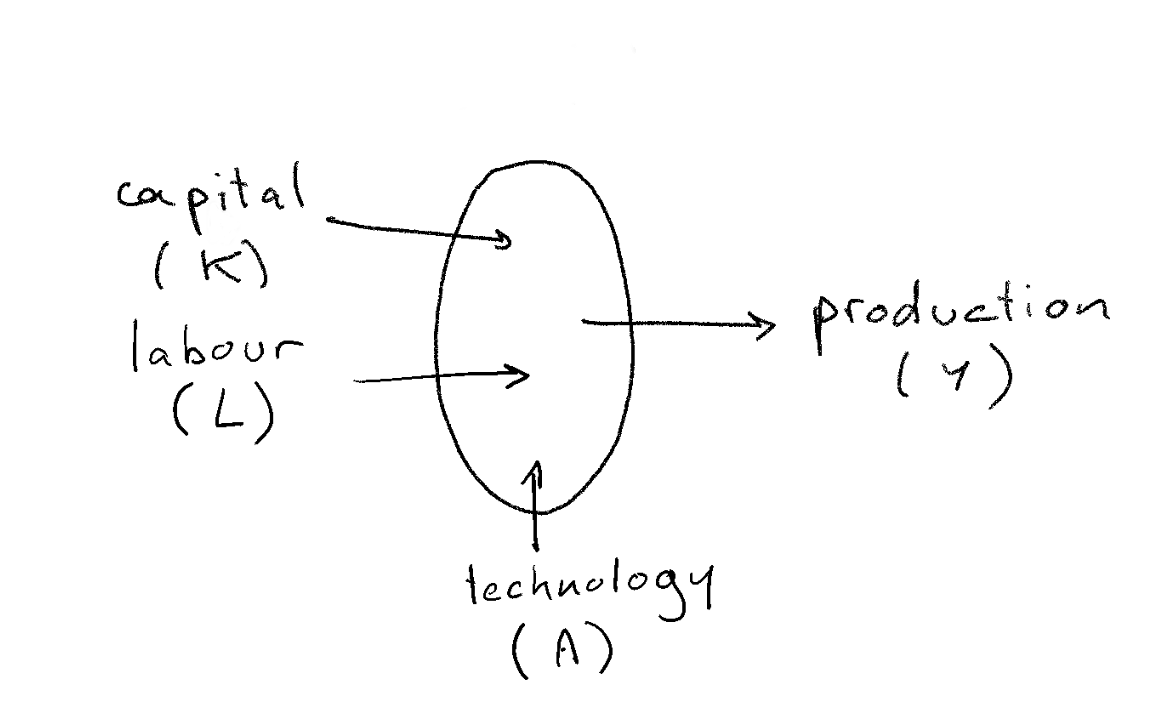
- the precise description depends on the problem under consideration
- what could you change to take into account the effect of AI?
- data, technological change ?
Three hypotheses about the economic nature of AI
- A technological change
- A new kind of factor: Data
- Yet another kind of factor: Robots
- Something else Completely
AI is a change in the cost structure
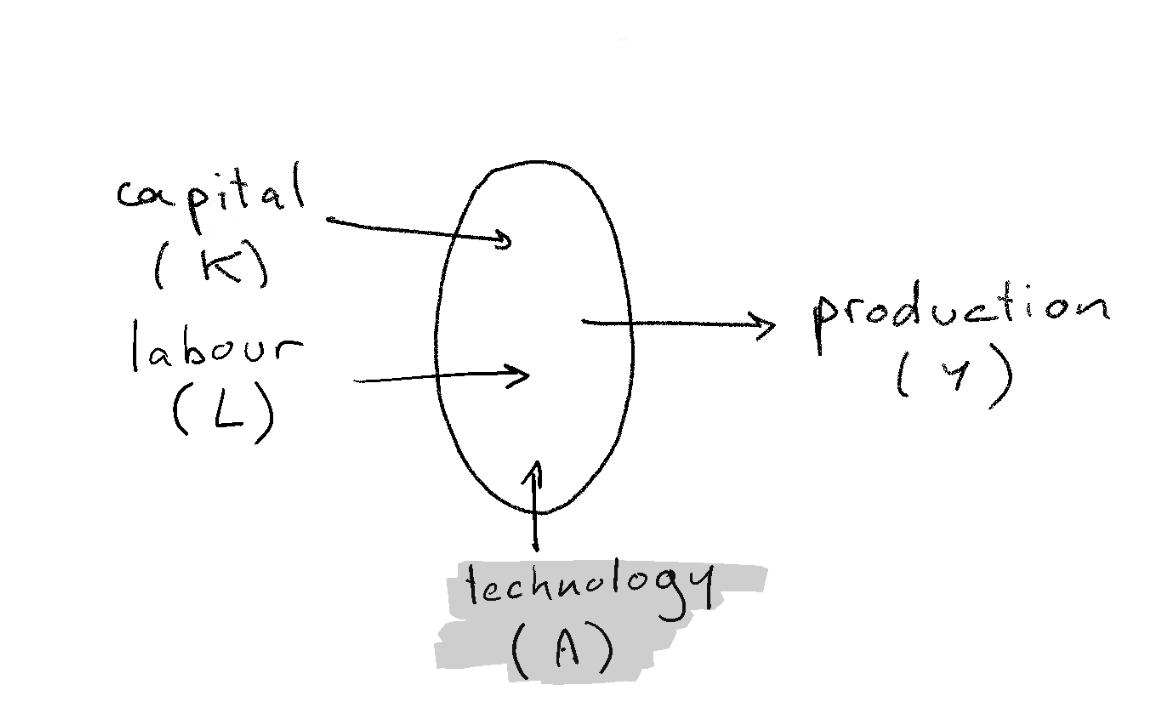
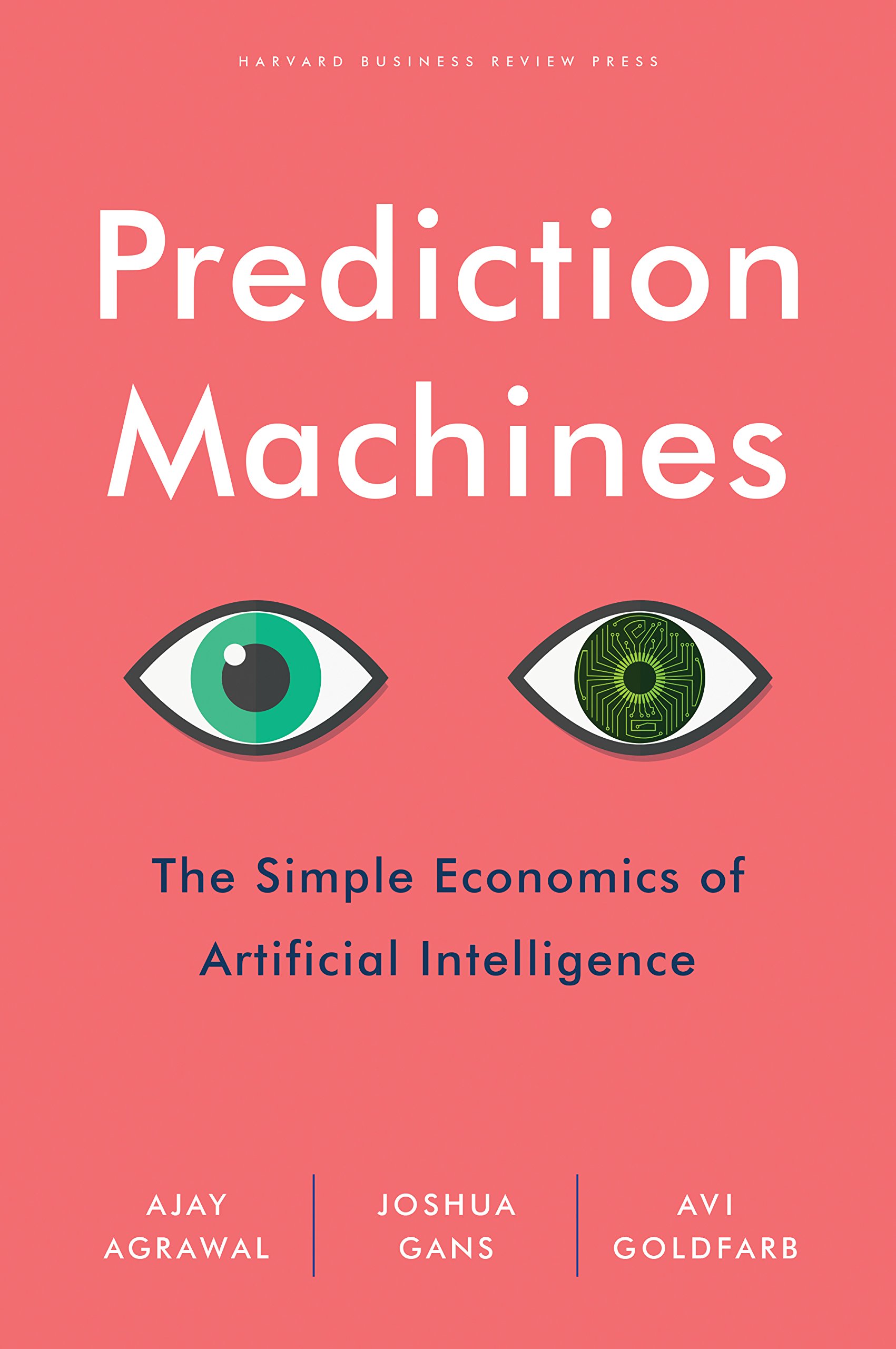
Ajy Agrawal, Joshua Gans and Avi Goldfarb: Prediction Machines: The Simple Economics of Artificial Intelligence 2018
Prediction Machines
- many production tasks can be formulated as prediction problems
- exemples:
- regression, classification: predict Y as a function of X
- student -> pass or fail ?
- should I invest in A or B ?
- even chatbot: what is the appropriate continuation for an ongoing conversation?
Will I loose my job ?
- AI is a decrease in the cost of predictions
- The demand for all prediction-intensive tasks will rise (law of demand)
- The salary of workers with prediction-intensive tasks will rise (market price)
- Value of other tasks will fall (general equilibrium effect)
- More precisely:
- demand for tasks that are substitute to predictions will be low
- demand for tasks that are complement to predictions will be high
AI is Data
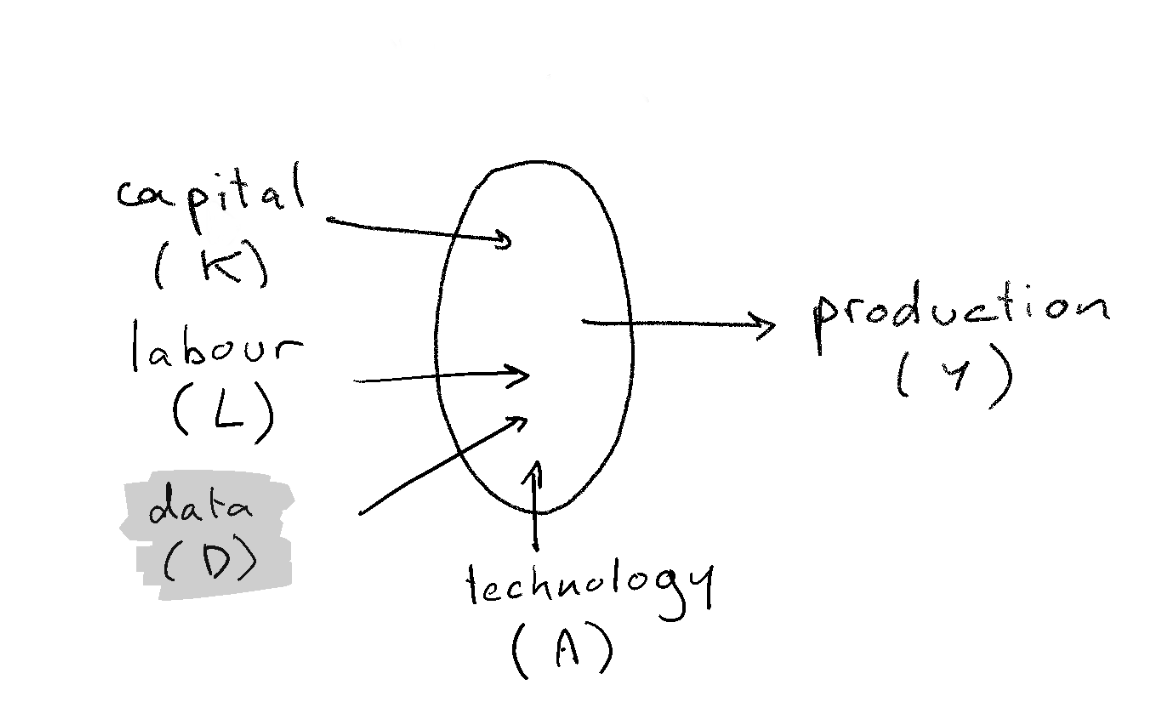


Chad Jones and Christopher Tonetti (Stanford) Nonrivalry and the Economics of Data (Sep 2020, American Economic Review)
Data is a factor not a technology
- Data is a factor, not a technology
- Can you explain it ?
- The difference between an idea and a factor? Exemples:
- idea: use machine learning to build self driving cars
- factor: each car-maker gathering his own data to train cars
- Data (even anonymous) improves quality of existing products
What kind of good is data ?
- Remember the classification of goods?
- nonrival: can be used with leftovers
- excludable: use can be limited to paying customers
- data is a: club good
- Nonrivality implies increasing returns to scale
- marginal value of new data increases more than proportionnally
AI: adds data to the production function (consequences)
- increasing returns to scale implies natural monopoly
- ->GAFAMs
- increasing suboptimal monopoly rents (already a problem before existence of AI…)
- should you regulate a monopoly?
- it depends what is the barrier to entry: data-gathering or data-processing
- other relevant questions
- where are the markets? (empirically it seems “undertraded”)
- who owns the data ? Consumer, producer.
How do you regulate a Data-monopoly ?
- solutions:
- split the monopolies (if deadweight loss is too big)
- outlaw data gathering (big productivity loss)
- force data-sharing: make it a public good
- let the consumer be free to decide whether to rent his data (remove externalitiess)
AI: competition between humans and robots
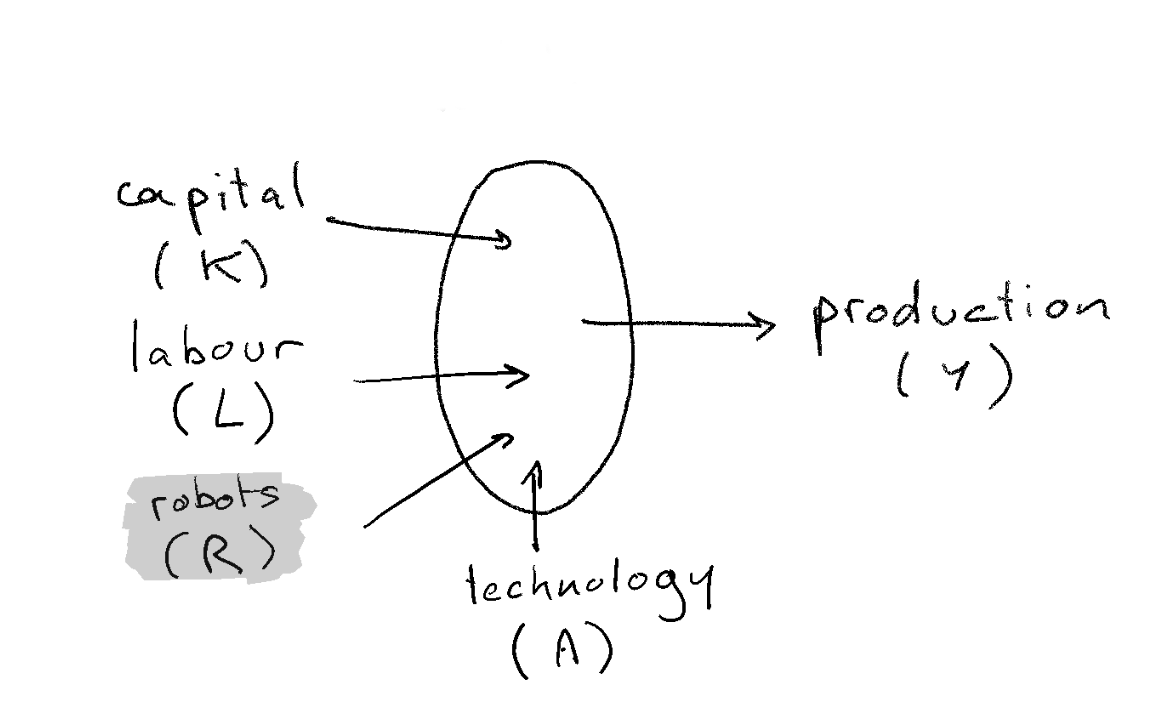
Economic singularity
- In the very long run, could technology be bad?
- Recall the neoclassical world
- market economy
- technological progress reduces production cost
- always good for consumers. Increase (real) total income.
- becomes an inequality problem
- But
- whether technology reduces salaries depends on whether growth is labour augmenting or capital augmenting
- if AI is a close enough substitute, salaries of “humans” as a whole are at risk
- the is an economic singularity when salary of humans arrives below the subsistance level

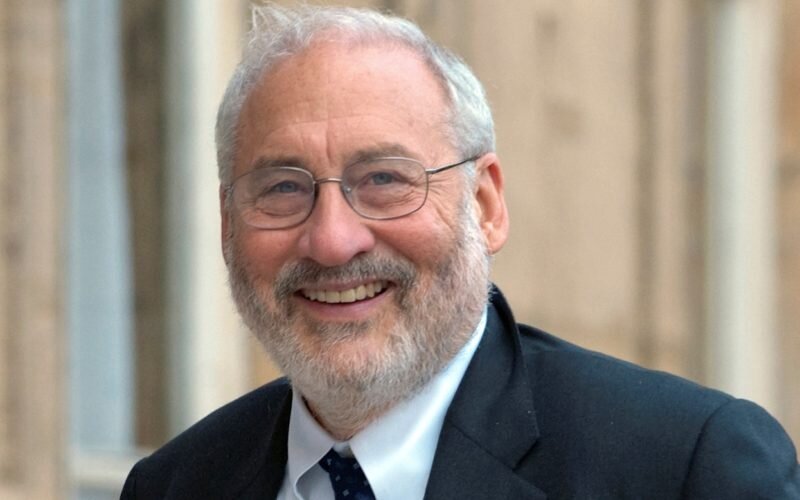

- Two sets of authors reach very similar conclusions
- Anton Korinek and Joseph Stiglitz (left): more complete/technical
- Gilles Saint Paul (right): more political economy
Some very long run scenarios
- Analysis taken from Gilles Saint Paul
- Main hypothesis: all humans can be replaced by more productive robots
- Comparative advantage logic:
- humans specialize in work where their comparative disadvantage is lowest (services, art, crafting…)
Scenario 1: society redistributes income from robots
Four political subscenarios:
Welfare state
- robot-owners are taxed, income is redistributed
- for instance as universal income
- some productivity losses
- what about international competitivity?
Rentiers society
- robot owners invest the rent over many generations
- capital concentration increases
Neo fordism
- firms pay huge salaries for essentially useless jobs (powerpoint presentations, 😉 …)
- useful to sustain demand
New roman empire
- robot owners: patricians (top 2%)
- rest of population: plebeians
- survive thanks to clientelism
- robots: slaves
Scenario 2: wars, starvation, epidemic
- human income (marginal productivity) falls below subsistance levels
- malthusian effect: population growth decreases
- not unheard of (Leontieff): consider population of draft horses
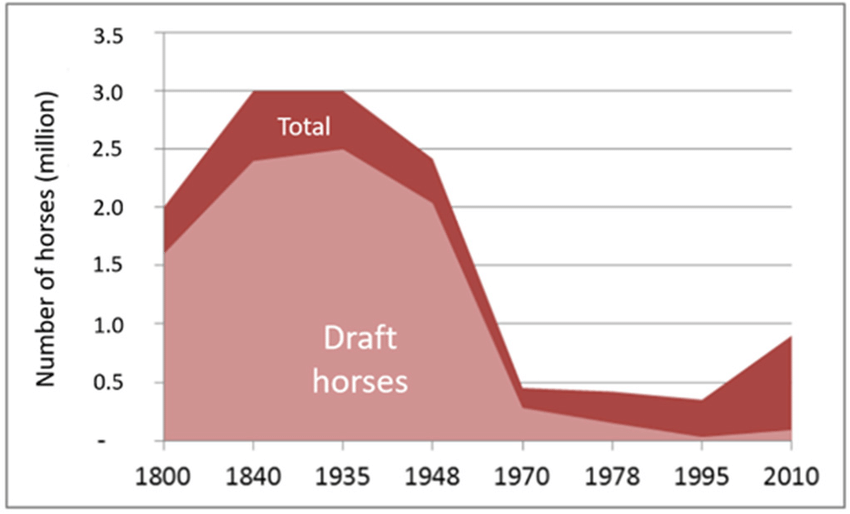
Scenario 3: the Matrix

- human wage decrease
- subsistance level decrease dramatically too
Something Else Completely?
- Right now AI is a technology (or a factor)
- What if it becomes another intelligent agent?
- has its own goals
- its own preferences
- with superhuman thinking abilities…
- Response in the literature (if curious):
- Anton Korinek: if market economy survives
- malthusian and non-malthusian scenarios
- At that stage humans might be something different completely
- transhumanism
- Anton Korinek: if market economy survives
Conclusion
- Research on AI is very speculative: especially about the long run
- But concepts from classical economics still help
- For next time:
- make sure you understand all concepts in bold
More Readings
Chad Jones and Christopher Tonetti: Nonrivalry and the Economics of Data, American Economic Review
Avi GoldFarb: Prediction Machines: The Simple Economics of Artificial Intelligence 2018
Gilles Saint Paul: Robots Vers la fin du travail ?
Anton Korinek, Joseph E. Stiglitz: Artificial Intelligence and Its Implications for Income Distribution and Unemployment, chapter in Artificial Intelligence and Its Implications …, NBER
- also on coursera